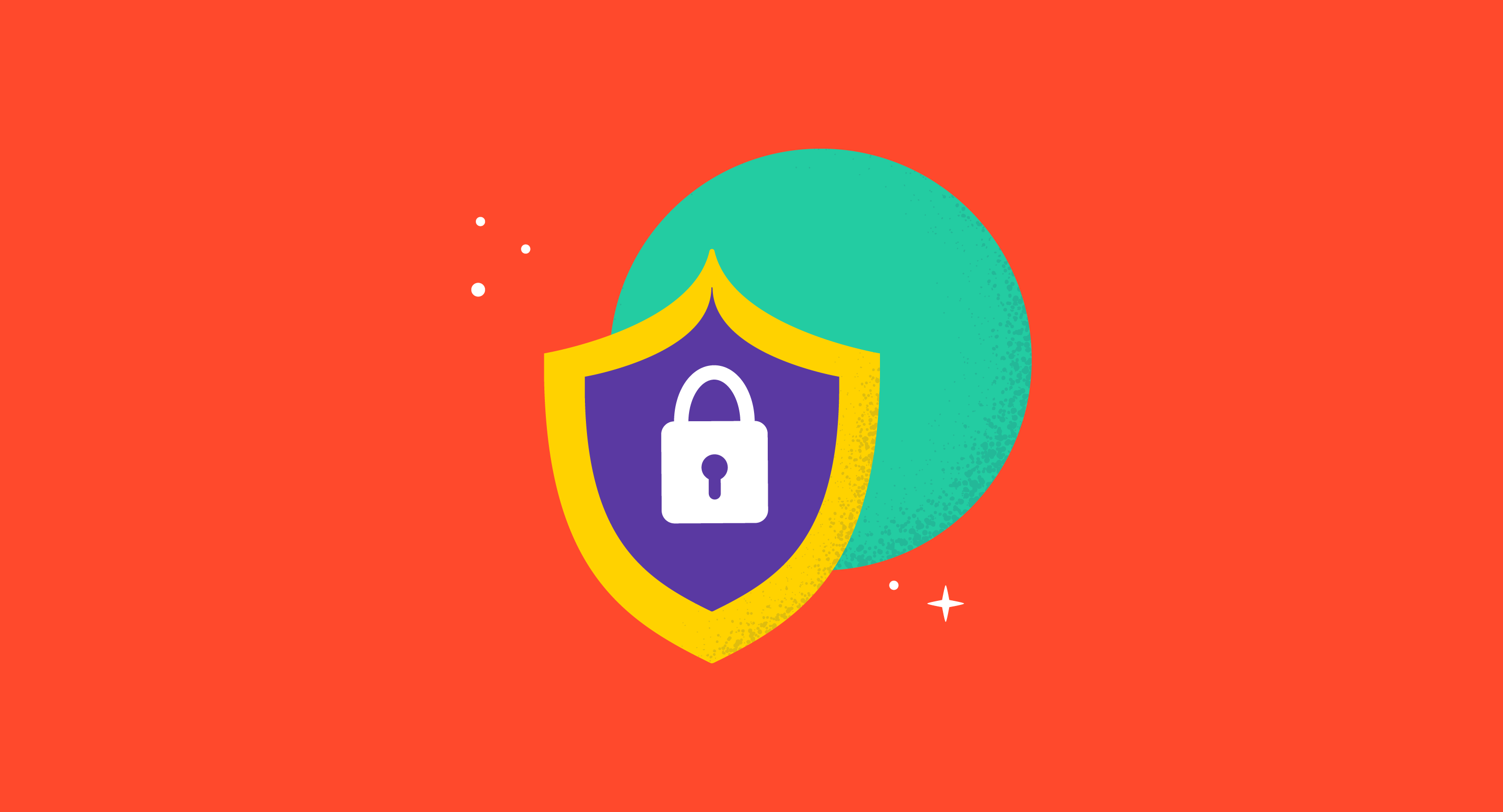October 30, 2020
 by Sagar Joshi / October 30, 2020
by Sagar Joshi / October 30, 2020

Securing a job as an ethical hacker is a tricky process.
You might have substantial knowledge in the field with hands-on experience in penetration testing tools, SIEM systems, and the latest technology. But still, the interviews may not go as you plan.
Whenever the hiring manager asks about your experience, you land on a puzzle with multiple pieces of information, trying to figure out the ones you can share. As a penetration tester, you have a confidentiality agreement with your previous employer, and you don’t want to break it.
In such situations, you need industry-recognized certifications to validate and support your knowledge and experience. CEH is one such certification.
A Certified Ethical Hacker (CEH) certification, offered by EC-Council, validates your knowledge in bypassing an organization's security defenses by accessing their network, applications, databases, and other critical data through gaps in the security construct.
It tests your skills in uncovering vulnerabilities that can be exploited by a malicious attacker. A CEH certification prepares you to match a black hat hacker's techniques and creativity while equipping you with an in-depth understanding of hacking tools, evolving attack vectors, and preventative countermeasures.
Certified ethical hackers obtain permission from the asset owners before scrutinizing it for vulnerabilities and ensure that the outcomes remain confidential. The journey of becoming a certified ethical hacker begins with passing the CEH (ANSI) exam. Once you do, you can opt to take the CEH practical, a six-hour practical exam. When a professional is CEH certified and clears the CEH practical, they are recognized as a CEH Master.
But before diving deep into that, let’s start with some more information as to why becoming a CEH is essential.
A CEH certification helps penetration testers land into their dream jobs by validating that their skillset matches the industry standard. Here are some more reasons that explain the need to get CEH certified.
While planning a career in cybersecurity, a Certified Ethical Hacker certification validates your skills as a penetration tester and ensures that they are in line with the industry-recognized standards. As an ethical hacker, the results you deliver or the vulnerabilities you find are enclosed within a confidential shell. In such cases, proving your skillset and fitment for a job gets tricky.
You have to be careful while divulging the details to a hiring manager, as you might not want to risk any legal agreement with your former employer. A CEH certification helps you establish a benchmark for your expertise as an ethical hacker and showcases you as a rightful candidate for various cybersecurity roles.
Certified professionals are easy to onboard in an organization, as the requirement of training is minimum. Employers in cybersecurity prefer a candidate with comprehensive knowledge in the field, which exposes a certified ethical hacker to a plethora of opportunities at a substantial pay-scale.
$89,469
is the average salary of a professional holding a CEH certification, which you can scale beyond $128,000 with experience and other relevant certifications and skills.
Source: PayScale
If you are inclined toward securing a job in the Department of Defense (DoD), the CEH certification will pave your way into it. The DoD requires all of its Information Assurance Officers to be certified before handling sensitive information and network security.
The EC-Council's CEH certification fulfills DOD requirements for different job roles as follows:
The CEH course curriculum for gaining a CEH certification maps to industry frameworks like NICE/NIST, published by the Department of Homeland Security in collaboration with the National Institute of Standards and Technology (NIST) and Office of the Director of National Intelligence (ODNI).
It helps you further your career as a federal employee, as CEH v11 falls perfectly under the NICE 2.0 framework's Specialty Areas – Protect and Defend (PR) and Analyze (AN) and Securely Provision (SP).
With cybercrime rising at a tremendous pace, the need for qualified cybersecurity professionals is continually growing.
31%
is the projected employment growth rate for information security analysts from 2019 to 2020.
Source: U.S Bureau of Labor Statistics
Investing in cybersecurity resources is simply cost-effective, as the average price to clean up after being hacked is $690,000 for small businesses and over $1 million for a medium-scale business, according to the Ponemon Institute.
An industry-recognized certification will help you showcase your capabilities as a skilled IT security professional in this growing demand and guarantee your job.
To become a certified ethical hacker, you need to pass the CEH exam that consists of a total of 125 multiple choice questions. You have a time limit of four hours to complete the examination.
EC-Council maintains the integrity of the certification exams by providing it as different question banks. These question banks are analyzed through beta testing for a suitable sample group under the supervision of security experts.
It helps in ensuring that the questions asked in the exam have real-world applications in addition to academic significance. The governing body determines the difficulty rating of each question, and based on that, the cutoff is evaluated. Usually, it's in the range of 60% to 80%, depending on the set of questions you get.
In regards to the eligibility criteria for attempting the CEH certification exam, you have two options. First, you can complete an official EC-Council training at an accredited training center, approved academic institution, or via the iClass platform. In this case, you can challenge the EC-Council certification exam without going through the application process.
The second option for CEH certification eligibility needs you to have at least two years of experience in the information security domain as a prerequisite. If you have the relevant experience, you can submit your application along with a fee of $100 (non-refundable).
In the application form, you'll have to list your manager's details, who would act as verifiers in the application process. The application usually takes around a period of five to 10 working days, once the verifier responds to the EC-Council's request for information.
If you wish to go with the first option, i.e. the official EC-Council's program, here's what has changed in CEH v10 to CEH v11.
CEH v11 is the latest CEH program offered by EC-Council. The governing body has rolled out some critical areas of focus in this version while evolving continuously with the operating systems, tools, tactics, exploits, and technologies. The updates in CEH v11 are as follows:
Parrot Security OS intends to provide an all-inclusive suite of penetration testing tools for attack mitigation, vulnerability assessment, security research, and forensics. It offers better performance than Kali Linux on lower-powered laptops and machines while providing an intuitive look with an extensive repository of general tools.
CEH v11 incorporates updated cloud and IoT modules to cover the cloud service provider's container technology like Docker and Kubernetes, cloud computing threats, and multiple IoT hacking tools like Shikra, Bus Pirate, Facefancer 21, and more.
As the world is continually moving toward deeper cloud adoption, ethical hackers are expected to know about security threats associated with them. CEH v11 program enables you to avoid, identify, and respond to such cyberattacks.
Also, CEH covers advanced skills and concepts of operational technology (OT) such as the Industrial Control System (ICS), Supervisory Control and Data Acquisition (SCADA), and more. It includes various challenges of OT, OT hacking methodologies, communication protocols of an OT network like Profinet, Zigbee, and many more.
The CEH v11 covers modern malware analysis techniques for ransomware, banking, IoT botnets, OT malware analysis, Android malware, and more. In recent times, the security community is sounding an alarm for fileless malware attacks.
CEH v11 enables you to focus on multiple malware techniques with associated defensive strategies. The training course includes a taxonomy of fileless malware threats, techniques to bypass antivirus, launching fileless malware through script-based injection, and more.
In the CEH v11 course, more than 50% of the curriculum is focused on developing practical skills in live ranges with EC-Council labs for practicing and improving hacking skills. The latest iteration of CEH also includes new operating systems, including Windows Server 2016, Windows Server 2019, and Windows 10 configured with firewalls, domain controllers, and vulnerable web apps.
Now, if you are going forth with the second option of proving your two years of experience and taking the self study route to obtain the CEH certification, here's how you should proceed.
If you’ve decided that you want to test your experience and nail the CEH exam through self study, here’s what you can do.
Depending on how soon you intend to take the CEH exam, create a study plan accordingly. Avoid investing a large amount of time in one topic; ensure that you devote the required time to all areas based on your strengths and weaknesses.
Tip: Download the checklist now, print it, and use it to prepare for your exam.
Checklist: Topics to cover for the CEH certification exam
You can also check the CEH exam blueprint to analyze the weightage of different topics and align your preparation strategy likewise.
While studying the topics mentioned above, make sure you develop an understanding from a real-world perspective. You can create a virtual lab environment at your own place and use it to practice the hacking techniques learned.
Start attempting free CEH quizzes to identify the areas where you need to work on and improve as per the CEH standards. It's advisable to go through some ethical hacking courses and enhance your understanding of real-world examples and experiences.
You can also join an online community or forum to discuss your confusion and learn from others' missteps. It's helpful if you prepare for the exam all by yourself. The decision of self studying is a bold one, as it's a costly certification.
The best strategy would be to enroll in a CEH training program, but if you are confident to tackle questions from the topics mentioned above, you can always give it a shot.
The choice of preparation strategy for the CEH certification exam depends solely on you. Either you enroll in a CEH training program or take the self-study route, make sure you put sincere efforts into preparing for CEH, as it would benefit your career immensely.
Are you ready to start the preparation today? Begin with the basics and learn more about penetration testing in detail.
Sagar Joshi is a former content marketing specialist at G2 in India. He is an engineer with a keen interest in data analytics and cybersecurity. He writes about topics related to them. You can find him reading books, learning a new language, or playing pool in his free time.
Whether you’re a newcomer or a seasoned IT professional, the path to earning cybersecurity...
 by Sagar Joshi
by Sagar Joshi
The cybersecurity industry is in the midst of a crisis, a crisis that demands immediate...
 by Dr. Chase Cunningham
by Dr. Chase Cunningham
There is a lot involved when making the decision to purchase insurance for your business.
 by Rob Browne
by Rob Browne
Whether you’re a newcomer or a seasoned IT professional, the path to earning cybersecurity...
 by Sagar Joshi
by Sagar Joshi
The cybersecurity industry is in the midst of a crisis, a crisis that demands immediate...
 by Dr. Chase Cunningham
by Dr. Chase Cunningham


